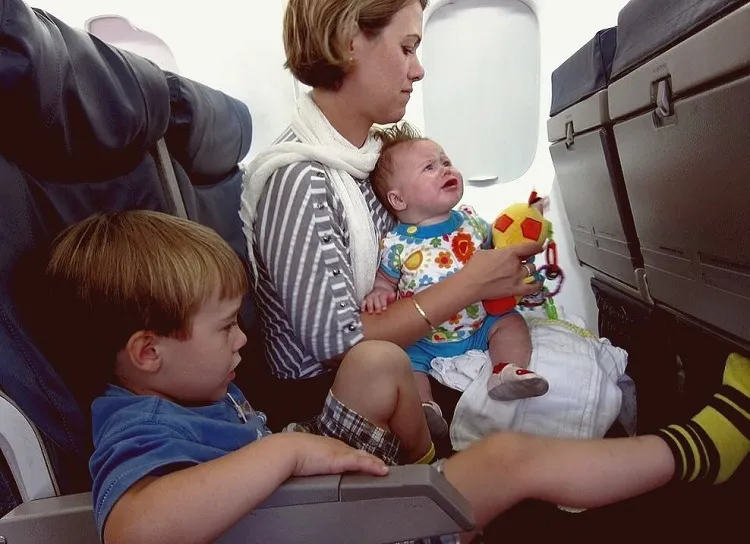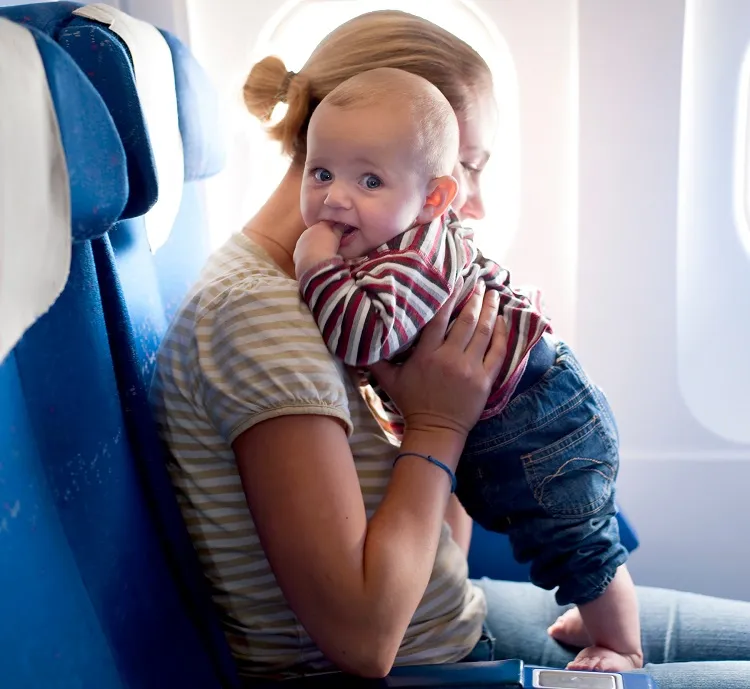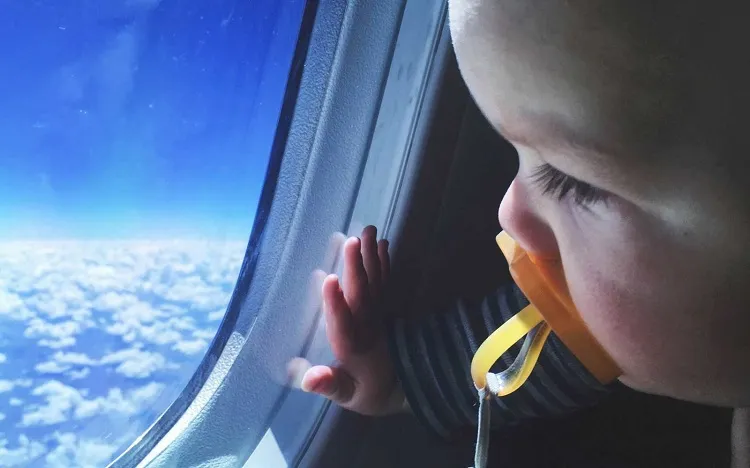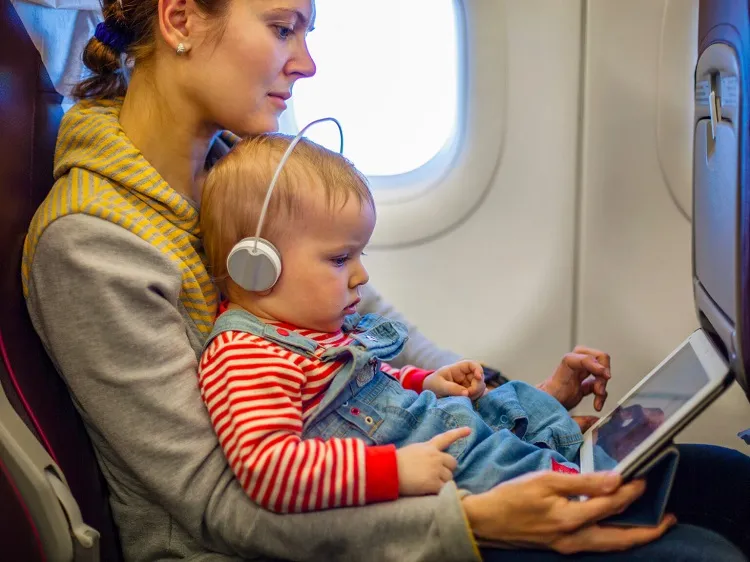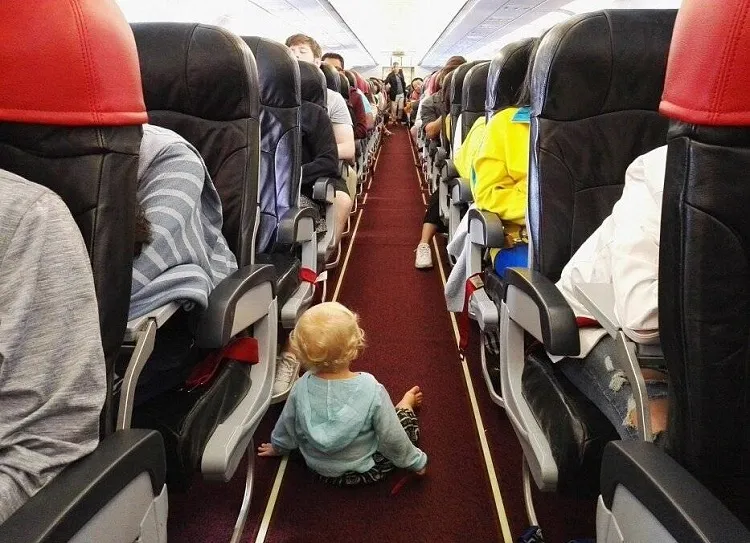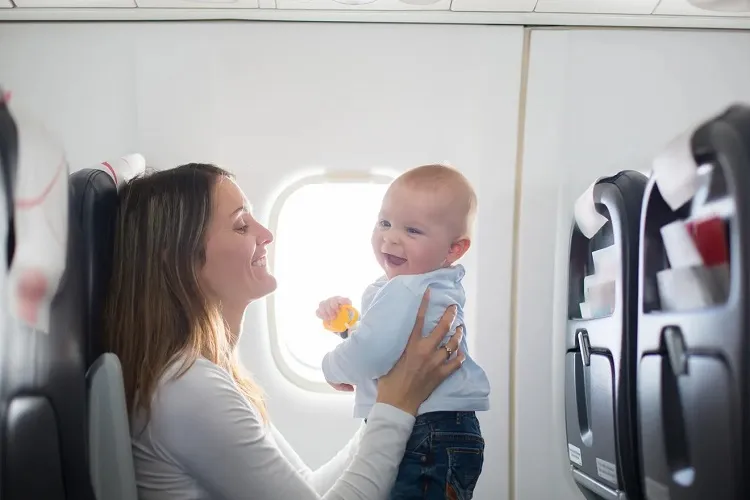Flying with a baby can be a discouraging experience for new parents, especially if their little one starts crying in the middle of their journey. While it’s a natural reaction, it can be particularly challenging when you’re in a confined space, surrounded by strangers, and can’t always identify the cause of your baby’s distress. Read this article to reveal the reasons of baby cries on plane, and most importantly, to know how to soothe them during the flight.
Why do babies cry on planes?
It’s of great importance to know why do babies cry when they are on an airplane, and whether there is some more special reason for this. Babies may cry for a variety of discomfort feelings, but the most common ones on a plane are because they are hungry, or they feel fatigue by the new situation. Additionally, unfamiliar persons, noise, and changes in the air pressure during aircraft’s takeoff and landing contribute much to a baby’s confusion.
Baby cries on plane: Why do babies’ ears hurt when flying?
The rapid pressure fluctuations in the aircraft air can cause discomfort to baby’s ears, similar to the way you might experience ear popping. Babies’ Eustachian tubes in their middle ear, which are responsible for equalizing pressure, are smaller than those in adults. This can lead to a build-up of pressure there, resulting in unpleasant sensation and even pain.
How can I help my baby with air pressure on a plane?
One way to help you to cope with baby crying on the plane is to encourage them to swallow. Swallowing can open up the Eustachian tubes and equalize the pressure in the middle ear. You can do this by breastfeeding, bottle-feeding, or offering a pacifier, especially during the aircraft’s takeoff and the landing. The sucking motion will encourage your baby to swallow and ease any stress situations, caused by variations in the pressure.
How can I protect my baby’s ears while on a plane?
Ear protection is an easy solution that can help reduce the feeling of discomfort, caused by air pressure fluctuations. Earplugs, specially designed for babies and little children, can be found in most drug stores or ordered online. They work by creating a seal around the baby ear canal, which reduces the pressure changes and noise during the flight.
Buying noise-cancelling headphones is the other option to lower the effect of the noisy environment. This can be rather helpful to soothe baby cries on the plane, if you know that they are sensitive to such a noisy surrounding.
How to calm a crying baby on a plane?
Crying is the baby’s way to communicate with us, and it’s essential to respond to their needs immediately. Here are some ways to soothe baby cries on the plane:
- Comfort them. Hold your baby close to you and soothe them with a touch, like rubbing their back or forehead. Singing or humming a gentle song can also help.
- Change baby’s position. If your baby feels uncomfortable or is in pain, try to change their position. This will result in some relief of the unpleasant feeling.
- Offer a distraction. When your baby is restless, offer some toys, books, or a tablet to entertain them.
- Take a walk. Maybe your baby is fussy and won’t settle. If this is the case, take them for a walk up and down the aisle. This movement can be an interesting experience for your little one and help them fall asleep.
- Ask for help. Don’t be afraid to ask for help from the flight attendants or fellow passengers. They may have experience with babies and can offer helpful advice or lend a hand.
Baby cries on plane: Tips for 8-month-old on plane
Traveling with an 8-month-old baby requires some preparation and attention to their needs. Here are some tips for making the flight as comfortable and stress-free as possible:
- Schedule flights around nap time. Try to schedule the takeoff time of the aircraft around your baby’s nap time, so they can sleep during most of the flight. Bring along a comfortable blanket or pillow to allow them to nap more comfortably.
- Bring wipes and diapers. Be sure to pack enough diapers and wipes for the duration of the flight, and in case of unexpected delays.
- Dress your baby comfortably. Choose breathable clothing from cotton material, and avoid too tight or restrictive dresses. Consider taking an extra outfit in case of spills or other accidents.
- Pack formula and snacks. If your baby is on formula or can eat solid foods, be sure to pack enough of them for the flight.
- Read airline policies. Before you fly, check the airline’s policies on traveling with infants. Some airlines offer special seating arrangements for parents with babies.
Flying with a baby can be challenging. But understanding why babies feels unhappy on planes and how to alleviate their discomfort, can make your journey stress-free and even an adventure experience for your little one.

